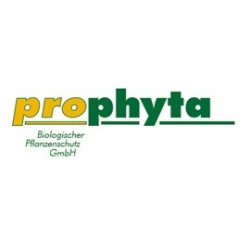Bayer CropScience Acquires Biocontrol Specialist, Prophyta

Bayer CropScience has signed on the dotted line to acquire Prophyta GmbH, a supplier of microbial crop protection products headquartered in Mecklenburg-Vorpommern, Germany. This acquisition also gave Bayer the rights to the Prophyta´s research and development laboratories as well as production and formulation facilities in Wismar, Germany. Closing is expected within a few weeks. Financial details were not released.
Bayer CropScience´s portfolio will be bolstered by the move, which enhances its already leading offer of integrated crop solutions based on high-value seeds, innovative crop protection solutions and customized services.
Dr. Rüdiger Scheitza, Bayer CropScience board member and head of strategy and business management said, “Prophyta´s patented solid-state fermentation technology and strong expertise in the formulation of live fungal spores will help us bringing new, innovative solutions to market.” Prophyta will also allow Bayer to further leverage its technology platform acquired through Athenix Corp. and AgraQuest.
“We are proud to become part of Bayer CropScience,” added Prophyta Managing Director Dr. Peter Lüth. “Our production and formulation capacities will help Bayer CropScience to supply its worldwide customers with large quantities of biologics based on natural fungal micro-organisms.” This acquisition also opens up many opportunities for innovation in the area of research and development as well as growth within the Bayer CropScience Marketing and Sales network.
Prophyta, founded in 1992, offers well-established products primarily based on biological control agents which are registered in more than 30 countries worldwide. Key brands are Contans for control of Sclerotinia and the nematicide BioAct. Furthermore, Prophyta has developed a unique solid-state fermentation technology for production and bioprocess development of filamentous fungi. Using this patented technology, large quantities of fungal biomass as well as fungal spores can be produced under axenic conditions.





